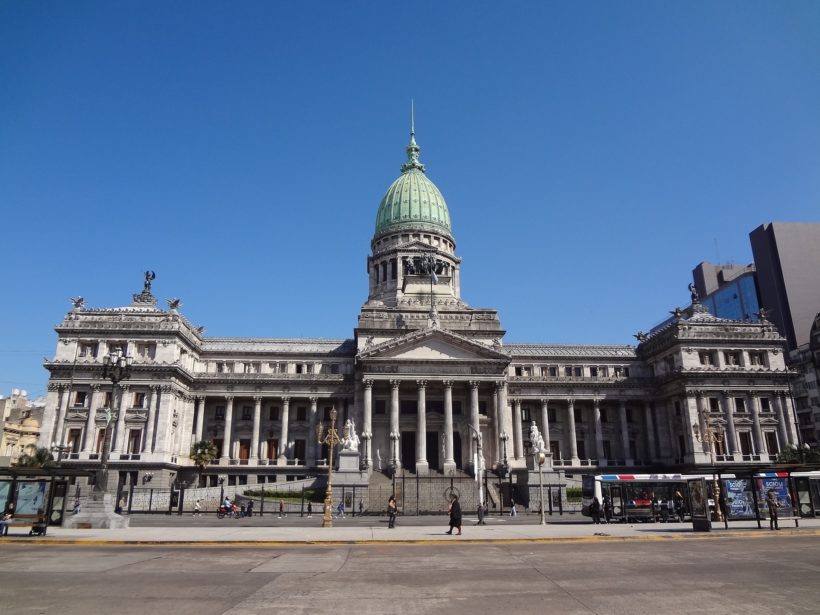The palace of the two Congresses in Buenos Aires, Argentina (Image by 139904/pixabay)
In Argentina, the phenomenon of a hard setback for the ruling parties in elections during a pandemic context was repeated once again. Understandably, managing the state in the midst of this chaos of civil crisis wears down even the best painted. By this I do not mean Donald Trump, the first prime example of this attrition. Before the pandemic began, we all had the feeling that he would win in a landslide, but what he called the “Chinese virus” ended up disrupting his plans.
In Argentina, these primary elections do not define much of a course, since what was chosen were the candidates for the legislative elections on 14 November. There will be 127 deputy and 24 senatorial seats at stake.
However, the reading of these Open, Simultaneous and Obligatory Primaries (PASO) must be done quickly in order to try to remedy the adverse results or improve the positive ones.
It has been pointed out that one of the possible errors of the ruling party was to form single lists, which closed the way to greater participation by the broad sectors that make up the Frente de Todos. This would appear to be correct given the results in Tucumán, but it is not true in Chaco, where the three ruling party lists did not reach 36% of the effective votes and lost by more than 8 points, or Santa Fe, where the two ruling party lists lost by more than 10 points.
The big winner of this first contest is the alliance of those who governed between 2015 and 2019, who strengthened their ranks with some sectors highly critical of Peronism/Kirchnerism and who, under the banner of a discourse of fighting populism, maintain the percentages of popular support that Mauricio Macri had at the end of his term of office.
A less passionate reading allows us to see that the Frente de Todos does not need to sweep the legislative elections in order to hold a Congress that allows it to govern, although it does depend on two or three senators to maintain its majority in the Upper House. These seem achievable goals if the government focuses on the places where it needs to improve its percentages.
Where did the 6.5 million votes lost by the ruling party go?
A minority of the electorate preferred to support the various left-wing forces; another portion of this electorate went to the libertarian parties, which were strengthened after the dispute against the government over the restrictive measures imposed by Covid-19. However, it seems clear that most of the support base of those who accompanied Alberto and Cristina Fernández to lead Argentina resisted voting. One of the lowest voter turnouts since the recovery of democracy is a clear sign of this discontent and, to a greater extent, of the lack of enthusiasm generated by the executive.
On Sunday night the president took the blow of the electoral defeat and claimed to have understood the message. He said that he would correct the mistakes he had made and would once again seduce the sectors hardest hit by the country’s deep economic crisis.
The antipathy generated by the pandemic health measures, coupled with the economic restrictions imposed by the severe indebtedness of the Argentine state and the lack of capacity to respond to employment demands, will not be resolved in two months. But the executive seems to be desperate to regain the confidence of its electorate in the second half of the presidential term. The boldness that has not been present in these first two years of government will have to appear in order to stop favouring the most voracious sectors of the economy and an opposition that does not need to present any ideas or proposals, but only needs to point out the government’s mistakes in order to keep its numbers up.






